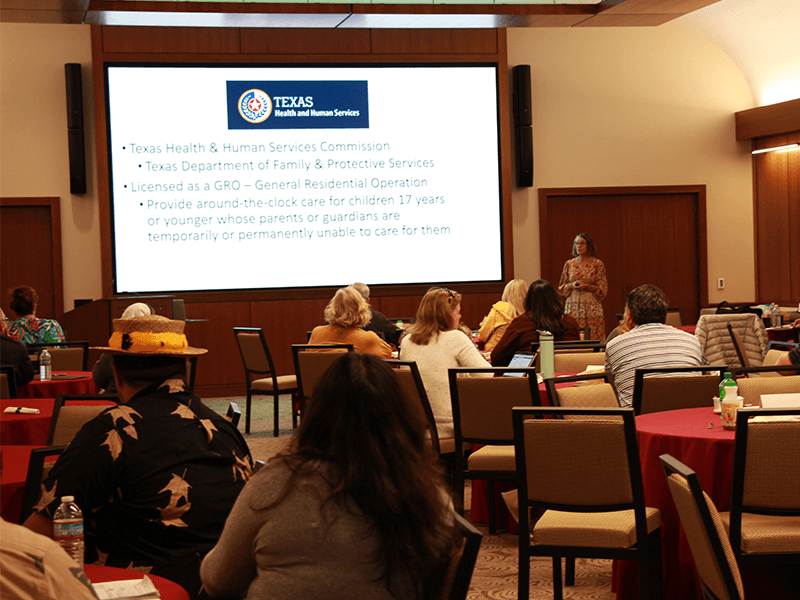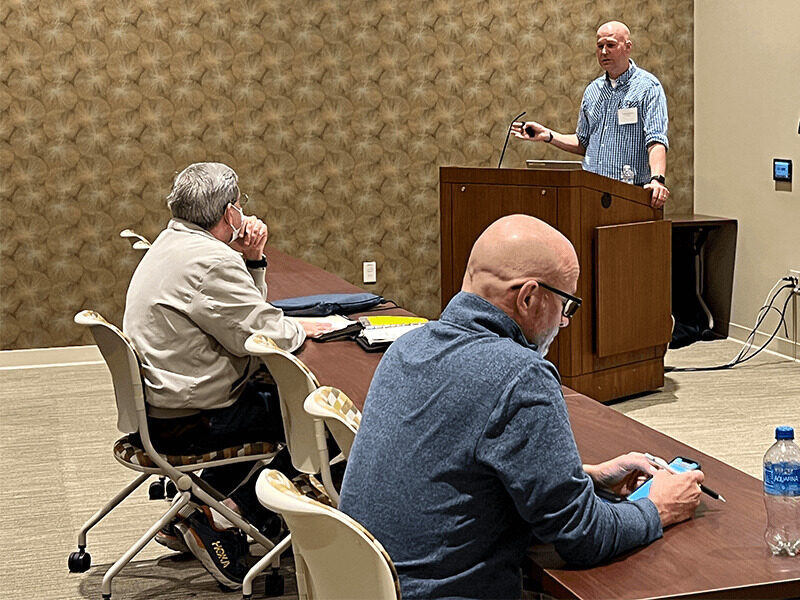Caregivers Often Need Care Too
By Laura Schmidt, MHS Director of Marketing Communications
When a Milton Hershey School employee shares about their job or talks about where they work and the students they serve, often the person on the other side of the conversation is left awestruck and in wonder. It’s usually followed up by a series of questions. How many students do you serve? What ages? They all live on campus? What’s a houseparent? But, the question that is not often asked, is what do you do to care for yourself.
It’s not often that you find professionals who are like-minded with a similar career field.
Recently, the Coalition of Residential Excellence (CORE)—a national organization—hosted its annual conference on the MHS campus and brought those like-minded experts together.

CORE serves boarding schools and children’s home from across the United States—even Hawaii. This conference was a way for those who provide residential (home-like) environments to children who live away from their families an opportunity to learn from each other and share knowledge and information.
Like MHS students, the children who live in one of these communities often are trying to overcome the challenges poverty has created in their lives. Through the concepts of a trauma-informed education and social-emotional learning, students are given every opportunity—through their classroom or home life experiences—to work on themselves.
But who is helping the adults who support these students find balance in their lives?
Don Forrester, the Executive Director for CORE spoke during one of the conference sessions about the importance of self-care and the need for those working with children from hard places to promote balance in their own lives. He called it “You Can’t Pour from an Empty Pitcher.” It was a reminder that caregivers often need care too.
Forrester shared, “The ethics of self-care are pretty simple. It’s knowing we are responsible for our future, looking within, carving out time for our favorite things, and slowing down.”

Simple right? (Or maybe not so simple?) According to Forrester, compassion fatigue or empathy fatigue can often attack the core of why we do the work that we do. He shared the following tips for helping caregivers remember how to care for themselves:
- Journal. There is evidence that journaling can have a positive outcome on our physical wellbeing in addition to our mental and emotional wellbeing.
- Find contentment. When you are content, evidence shows that those positive emotions can support immune function. What does contentment look like? It’s spending time with friends and family, it’s investing in hobbies that you enjoy, it’s living in the moment and making core memories, it’s embracing an optimistic outlook, and its reflection.
- Remember your why. Periodically, remind yourself of why you are doing the work that you are doing. It will help you center and realign yourself.
Three basic tips that remind us that the journey for all of us can be more enjoyable when we keep it simple and reflect.
Learn More About Wellness at MHSLearn More About Thought Leadership at MHS

